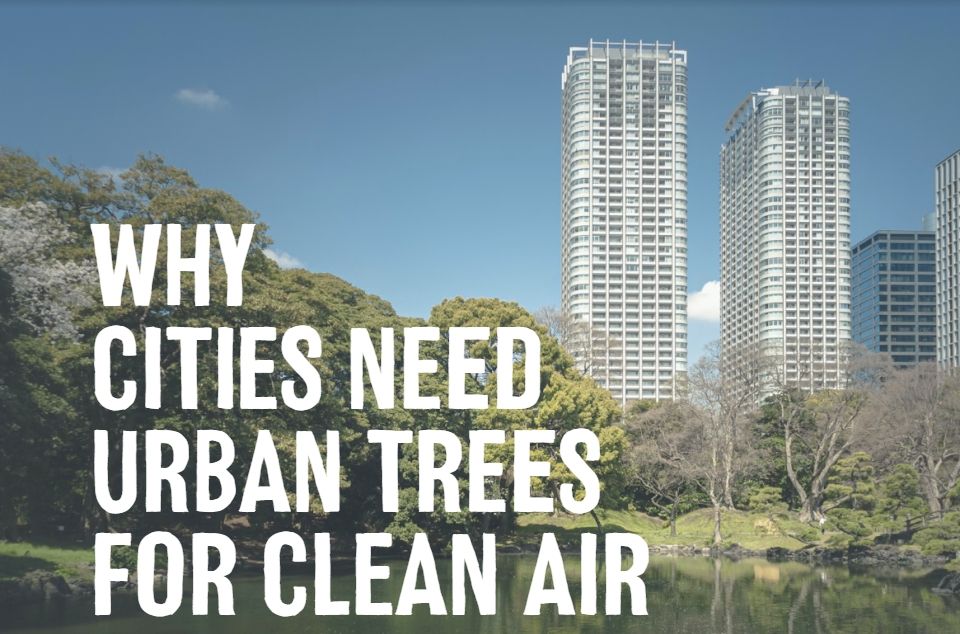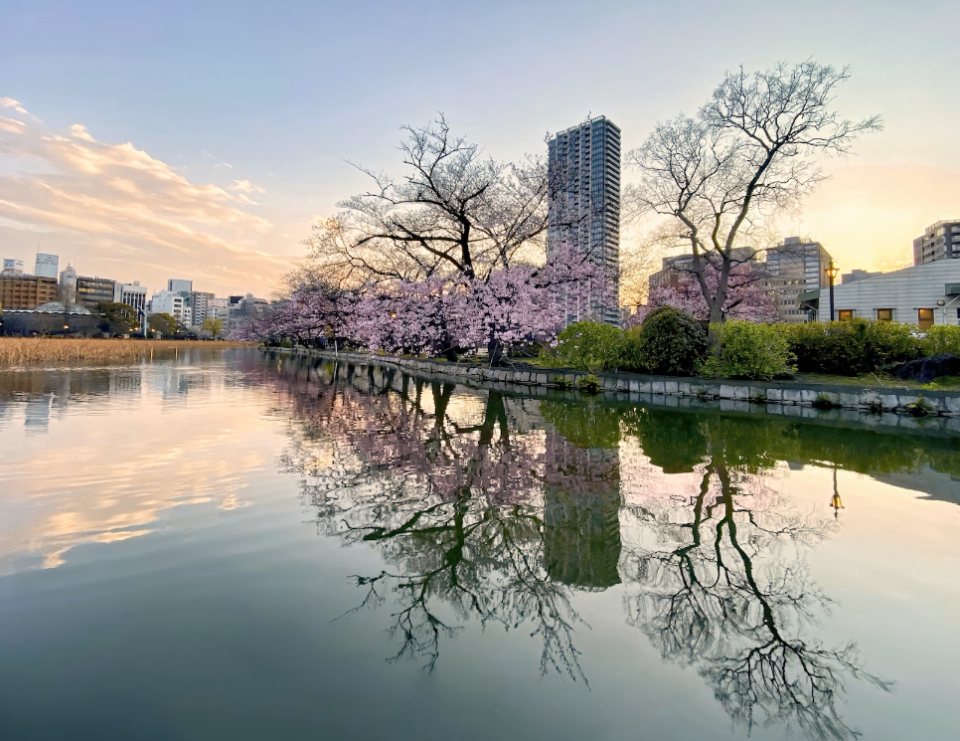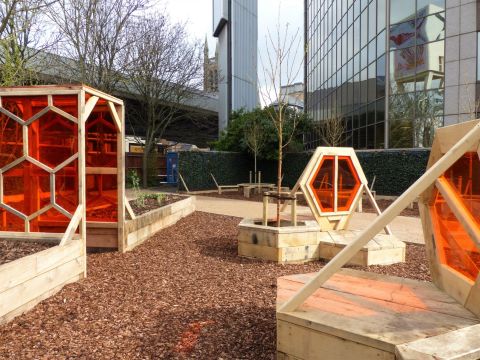Why Cities Need Urban Trees for Clean Air

Volunteer writer Sophie Bishop explores the relationship between urban trees and clean air ahead of Clean Air Day 2023.
Trees may not be the first thing that jumps to mind when you hear the name of any major urban city. But trees are an essential part of supporting life anywhere that we call home!
Though most of us know that trees recycle the carbon dioxide that we breathe out, many people may not appreciate the importance of the link between us, the trees in our cities, and our atmosphere.

Why air quality is so important
Before we get into the essential role that urban trees play in the air quality of our cities, let’s run through why air quality is so important in the first place.
- It Can Save People’s Lives
Air quality and breathing continuous polluted air can have a big impact on your health and lead to asthma, heart disease and even certain cancers.
Reports show that deaths attributed to man-made pollution in the UK alone are equivalent to “28,000 and 36,000 every year” and costs the NHS and social welfare systems just under a whopping one and a half billion pounds a year!
- It Uplifts Our Mental Health
There’s growing evidence to show that people who breathe polluted air can experience changes in the parts of their brains used to regulate emotions, which can lead to poor mental health.
According to Clean Air Specialist Dr Malcolm White, research shows that there is an association between air pollution and conditions including schizophrenia, depression, anxiety, and mood disorders. Poor air quality can even lead to rapid decline in cognitive function, including an increased risk of developing dementia.
This, alongside evidence to suggest spending time in nature, can lower blood pressure and stress hormones, has stimulated a rise in therapeutic approaches focussing on exposure to nature. Olivia Marcellino, VP of Research at Recovery.com, “Having regular access to plants—either indoors or outdoors—can greatly improve your mental health.”
- It Strengthens the Economy
When people get sick due to polluted air, they require more medical help and therefore may avoid working and spending in order to get better.
In fact, environmental researchers found that air pollution has a “$2.9 trillion economic cost, equating to 3.3 percent of the world's GDP”.

The Tree Effect on Air Quality
To put it simply, trees absorb particles through their leaves. Many of these substances that trees absorb are dangerous to humans but essential for plants to survive and thrive.
For example, trees can use carbon to grow new layers of bark and foliage, and nitrogen and sulfur to gain and store energy. For humans though, prolonged exposure to these pollutants are likely to make us sick!
Climate Portal reports that a single mature tree takes up about “50 pounds of carbon dioxide per year”, and this is excluding other major pollutants released by the use of cars and industrial processes, such as nitrogen dioxide, carbon monoxide, and sulfur dioxide. These chemicals are the main contributors to urban smog and poor-quality air.
50 lb
Thats how many pounds of carbon dioxide a mature tree can absorb!
Slowing the Tide of Pollution
In addition to absorbing and capturing pollutants and producing clean oxygen, certain trees also act as a physical barrier to limit the spread of pollution.
The canopies of “understory trees” (trees with a height ranging 15-49 feet) capture falling airborne particles, with the more dense trees and shrubs slowing the dispersion of pollutants. They also act as natural windbreakers, slowing the gusts that spread pollution from one place to another.
What’s more, the presence of trees can make the surrounding atmosphere more humid and the soil more dense and stable, which also slows the spread of particles in the air.
Working For Greener Spaces
Air quality (or the lack of it) touches every aspect of our lives, from influencing our physical and mental health to shaping our economies.
While broader, sweeping changes to our relationship with the air around us in the way of energy and fuel sources are taking shape, we should continue planting urban trees and greenery strategically across urban areas to improve air quality for all!
Donate
By making a one-off donation today, you can help us plant more trees that release oxygen, clean the air and help mitigate the effects already felt by the climate crisis.
Planting Healthy Air
We're helping create healthier towns and cities and tackle air pollution is through our Planting Healthy Air programme. We test green infrastructure, design and planting techniques to screen airborne pollution in schools.
Learn MoreTrees Breathe Life
Trees Breathe Life is our new campaign promoting the transformational impact urban trees bring to us all, and how they can 'Breathe New Life' into urban communities and improve the air quality!
Get involvedDonate to Trees for Cities and together we can help cities grow into greener, cleaner and healthier places for people to live and work worldwide.
Donate

